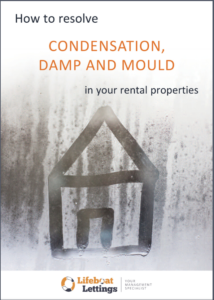
In a recent article written for Landlord Today, Paul Shamplina – Founder of Landlord Action and an active advocate for the rights of Landlords – wrote at length, regarding the required reforms to the court system to enable the ban on Sec 21 to be fairly implemented for both Landlords and Tenants alike. In this article, taking a steer from Paul, we summarise where the main changes are required and how these might be implemented.
The Government has rightly acknowledged that the ban on Section 21 eviction notices cannot not come into effect until several new conditions are met and HM Courts & Tribunals Service (HMCTS) in particular is fully prepared for the changes. Unfortunately, following a number of years of underfunding in the service, the courts themselves are poorly positioned to deal with the challenge in a fair and balanced fashion.
The original premise of the Renters (Reform) Bill was the creation of a fairer private rented sector for both tenants and landlords. Abolishing Sec 21 now, without the necessary provisions in place will not only be to the detriment of landlords but will more significantly impact tenants by reducing the already diminishing pool of rental properties available with predictable market consequences.
Necessary improvements include digitising the court process, hiring more bailiffs, giving tenants better legal advice, and prioritising anti-social behaviour cases.
The Government has approximately a year to make the necessary improvements. However, the latest figures from the Ministry of Justice indicates that, it takes on average 23 weeks from making a claim to the court being able to take possession of a property. The courts are therefore obviously in a dire state, so this timeline will be a challenge.
Paul Shamplina highlights the following key areas where reforms are urgently required:
- Increasing the number of judges as well as potentially hiring retired judges and appropriately trained solicitors to act as part-time district judges.
- In cases where landlords can prove financial hardship, judges at County Courts should start granting leave to transfer more eviction cases with serious arrears to the High Court.
- Adequate resources need to be allocated to encourage more bailiffs back to the sector. As well as increasing salaries, bailiff roles need to be restructured to focus more on case support and less on administrative tasks.
- Digitising the court system: expanding online platforms for filing evidence, conducting more remote hearings (which would also benefit tenants) and extending the duration of hearings since cases are increasingly complex.
- Finally, ensuring there is a properly functioning mediation system in place and to make sure it is introduced at earlier stages which may prevent cases escalating.
The wholesale reform of the UK courts is absolutely essential to the success of the Renters Reform Bill and in particular, the abolition of Section 21 notices. By enhancing judicial capacity, leveraging technology, introducing early mediation, and ensuring accountability, the courts can efficiently handle the expected volume of Section 8 cases while streamlining processes for fair and timely resolutions for both tenants and landlords.
At Lifeboat Lettings we will always help and advise landlords and assist where we can.
If you would like some help with any of the subjects covered above or anything else relating to properties or lettings, please email contact@lifeboatlettings.com.





